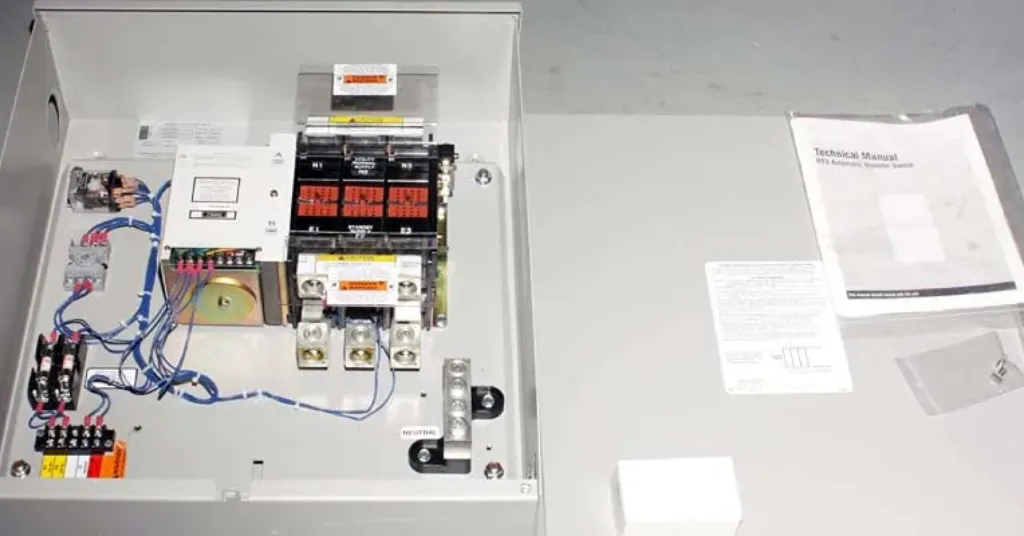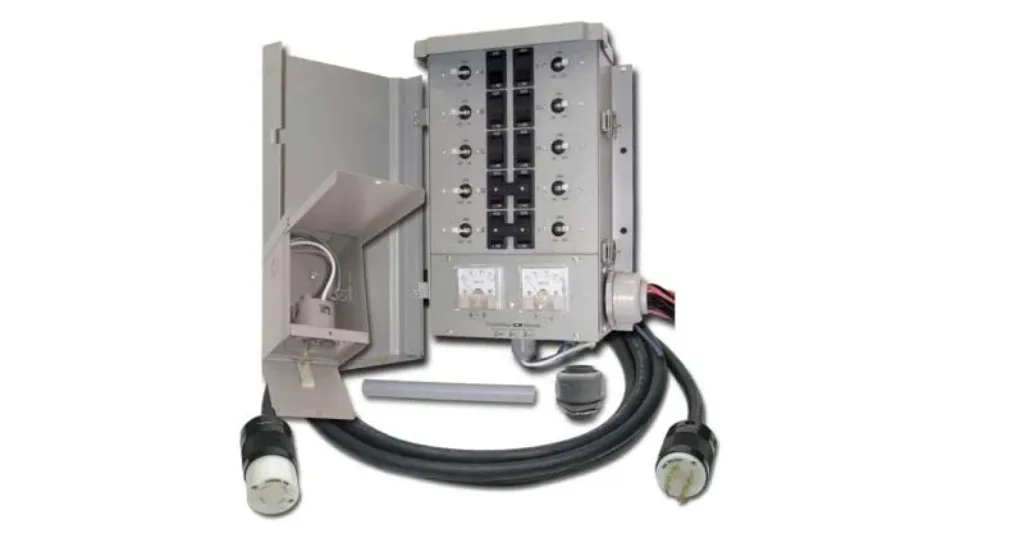Generator Transfer Switch Guide 2025: Types, Costs & Installation
Introduction: Why Transfer Switches Are Essential
Power outages cost Americans $150 billion annually in damages and lost productivity. While generators provide emergency electricity, improper connections can be deadly. Transfer switches are the only code-compliant solution that:
This 2025 guide covers automatic vs manual switches, professional installation insights, cost breakdowns, and emerging smart technologies.
Chapter 1: Transfer Switch Fundamentals
What Is a Transfer Switch?
A UL-listed electrical device that safely alternates between utility and generator power. Key components:
- Inlet box: Generator connection point
- Circuit breakers: Isolate selected loads
- Monitoring system (ATS only): Voltage sensors
How They Work: The Safety Mechanism
- Detects grid failure (ATS) or manual activation (MTS)
- Physically disconnects from utility power
- Engages generator circuit
- Prevents cross-connection via mechanical interlock
Chapter 2: Types of Transfer Switches
| Feature | Automatic (ATS) | Manual (MTS) |
|---|---|---|
| Activation | Instant (2-30 sec) | Human-operated |
| Best For | Standby generators | Portable generators |
| Cost | 500−500−2,500 | 150−150−800 |
| Install Complexity | High (requires pro) | Moderate |
Automatic Transfer Switches (ATS)
2025 Trend: Wi-Fi-enabled ATS models (like Generac Nexus) send outage alerts via app.

How ATS Works:
graph LR
A[Grid Power Lost] –> B[ATS Detects Outage]
B –> C[Signals Generator Start]
C –> D[Transfers Load in <30 Sec]
D –> E[Monitors Grid Return]
Manual Transfer Switches
Best Applications:

Critical Note: NEC 2023 requires all manual switches to include:
- Visual power source indicators
- Positive locking mechanisms
Chapter 3: Professional Installation Guide
Step-by-Step Process
- Permitting (75−75−300)
- Required in 92% of U.S. jurisdictions
- Load Calculation
- Typical home needs 8-12 circuits (fridge, furnace, etc.)
- Mounting
- Within 3 ft of main panel (NEC 708.24)
- Circuit Wiring
- Color-coded conductors (red=generator, black=utility)
- Testing
- Simulated outage with voltage meter verification
2025 Cost Breakdown
| Amp Rating | Material Cost | Labor Cost | Total |
|---|---|---|---|
| 30A | 220−220−400 | 300−300−500 | 520−520−900 |
| 50A | 350−350−600 | 400−400−700 | 750−750−1,300 |
| 100A | 600−600−1,200 | 800−800−1,500 | 1,400−1,400−2,700 |
Data from HomeAdvisor 2025 National Averages
Chapter 4: Emerging 2025 Technologies
1. AI-Powered Load Management
New ATS models (e.g., Kohler Intelliconnect) predict outage durations and:
- Cycle non-essential loads
- Optimize fuel consumption
- Prioritize medical equipment
2. Grid-Interactive Systems
- Solar-ready switches: Tesla Gateway 3
- Demand response integration: Schedules generator use during peak rate periods
3. Self-Testing ATS
Weekly auto-tests with cloud-reported diagnostics (meets NFPA 110-2025 standards)
Chapter 5: Safety & Compliance
NEC 2025 Updates
- Article 702.5: Requires visible “Generator Connected” warning
- Article 445.18: Mandates weatherproof enclosures for outdoor ATS
Danger Signs of Poor Installation
⚠️ Burning smell near switch
⚠️ Flickering lights when generator runs
⚠️ Warm cover plates (indicates loose connections)
Final Recommendations
For Whole-Home Protection:
➔ Generac 200A Smart Switch(1,899installed)∗∗ForPortableGenerators∗∗ ➔RelianceControls30AMTSKit(1,899installed)∗∗ForPortableGenerators∗∗
➔RelianceControls30AMTSKit(549 + install)
DIY Alternative:
➔ Interlock Kit ($250) + electrician sign-off required
Pro Tip: Look for UL 1008 certification—the gold standard for transfer switches.
